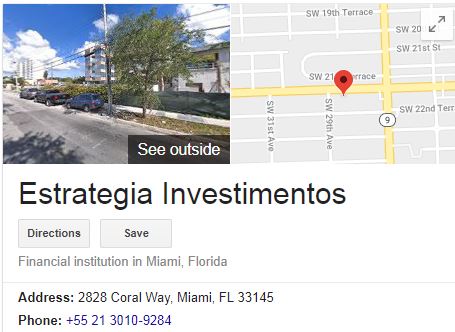Florida Court Approves Forum Selection Clause As Mandatory and Enforceable
- By : Cbh
- Category : Clauses from Contracts, Jurisdiction

It’s not often that banking cases are “fascinating,” but the facts underlying Pablo Antoniazzi v. Hamed Wardak certainly are interesting. More importantly, the Third District provides some guidance to lawyers writing and seeking to enforce (or avoid) a mandatory forum selection clause.
First let’s discuss the points of law in the opinion and the forum selection clause which was approved by the Third District Court of Appeal. Then we will discuss some of the more unique factual points.
Here’s the clause. The bold portions are the sections which were attacked by the defendants.
Applicable law—venue for judicial and foreclosure proceedings
All legal relations between the client and the Bank are governed by
Brazil law. The place of performance, the exclusive jurisdiction for
all legal action and the venue for legal proceedings if the client is
resident abroad is the place where the head office or branch of the
Bank maintaining the contractual relationship with the client is
located. To that end, the client elects the head office or branch
concerned as its address for legal service. The Bank nevertheless
reserves the right to instigate proceedings in the courts of the client’s
place of residence or before any other competent court.
It’s not a great clause likely because it was translated from another language.
So why did the Court enforce? Here are sections of the opinion:
- a forum selection clause is mandatory where the plain language used by
the parties indicates “exclusivity.” - A forum selection clause will be deemed mandatory where, by its terms, suit may be filed only in the
forum named in the clause, whereas “permissive forum selection clauses are
essentially a ‘consent’ to jurisdiction or venue in the named forum and do not
exclude jurisdiction or venue in another forum.” - the absence of the term “shall” or “must” does not
necessarily render a forum selection clause permissive - A contract will be considered valid even when its obligations are not mutual
as long as there is consideration for the contract as a whole. This general
proposition of law applies in the instant context, and we hold that the nonmutuality
of the forum selection clause does not render it invalid or permissive. - the mere fact that there were two possible fora for Appellees to file an
action (i.e., “the place where the head office or branch of the Bank maintaining the
contractual relationship with the client is located”) does not alter the mandatory
nature of this forum selection clause.
The Court also pointed to a Second District case, which had approved this (better) forum selection clause:
“Any legal suit, action, claim, proceeding[,] or investigation arising out of or relating to this Agreement may be
instituted exclusively in the courts of Makati City and Employee waives any
objections which he may now or hereafter have to such venue of any such suit …
and irrevocably submits to the personal and subject matter jurisdiction of any such
court”
Facts of the Case
Turning to the facts, the Appellees sought to deposit $2.7 million into the bank. After signing the Banking Agreement and wiring the money, the bank restricted access. Thereafter, the Brazilian government took over the Bank and initiated liquidation proceedings. The Appellees had signed the Banking Agreement in Miami and later sought to institute the underlying litigation in Miami. The bank never appeared as a party. In fact, the Miami office was not a location where deposits were received, checks paid, or funds withdrawn; the Bank not not have any State or federally regulated offices anywhere in the United States. The Court, acknowledging it was not “necessary to our decision,” provided this closing footnote:
“…at the evidentiary
hearing, Appellants introduced evidence that Appellees were looking to deposit the
$2.7 million into a foreign bank that had no presence in the United States and
would not respond to a subpoena from a court in the United States. The Bank
apparently met these criteria: An attorney who was advising Wardak during the
negotiation of the Banking Agreement testified it was his understanding that the
Bank “would not respond to a subpoena for a U.S. court.” The attorney also
acknowledged sending an email advising Wardak that Estrategia Investimentos,
S.A. (i.e., the Bank) “maintains no US presence, so it is perfect.” Thereafter,
Wardak and NCL deposited the funds with the Bank.”


